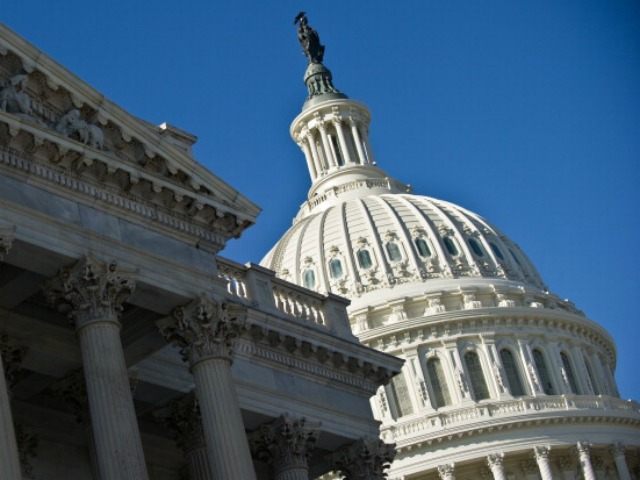Amid a flurry of self-congratulations, the Senate cleared a massive $305 billion Highway Bill, sending the legislation to President Obama.
“This has been one of the most exhilarating and satisfying experiences I’ve had in the time I’ve been in the Senate,” Senate Majority Leader Mitch McConnell said as the legislation sailed through the Senate by a 83-16 vote.
The bill provides just over $200 billion over five years for highway and road construction. The legislation also diverts $48 billion out of the highway trust fund to spend on mass transit. The majority of the funding for the bill comes from revenue from the federal gas tax. In recent years, however, Congress’ spending needs have outpaced revenues from the gas tax.
In the end, overall infrastructure spending in the bill was higher than proposals that had already passed the House and Senate separately. The House had proposed $268 billion in total infrastructure spending, while the Senate had passed $280 billion in infrastructure spending. The “compromise” agreement settled on $281 billion.
Compromise on spending is considerably easier when more money is added.
Congress plugged the hole by transferring $70 billion from general revenues into the highway trust fund. The money transfers are generally on-off budget gimmicks that plug the short-term holes, but leave enormous deficits in later years. Unfortunately, these budget transfers aren’t simply covering funding deficits, but underwriting additional spending increases. Under current language, the highway trust fund will need at least another $100 billion bailout in 5 years.
Most of the current bailout comes from raiding surplus funds at the Federal Reserve. Under the legislation, the Federal Reserve would redirect any surplus funds on its balance sheets to the government’s general coffers. Currently, the Fed puts these funds in a type of “rainy day fund” as send the Treasury interest payments earned on the savings. This fund would now be used to fund infrastructure.
The bill also raids the nation’s Strategic Petroleum Reserve, raising $9 billion by selling oil from the nation’s stockpile. The bill’s funding is based on selling this oil for around $90 a barrel, which is almost double the current market price.
“It doesn’t matter,” Democrat Rep. Pete DeFazio said, addressing concerns that the budget-gimmicks might not raise as much money as Congress hopes. “Because when this bill is signed into law, we transfer $70 billion into the trust fund. It’s mandatory spending. Whether that money ever shows up or not, that’s not our problem,” he added.
Tellingly, the Highway Bill also included an extra $3 billion in spending for a crop-insurance program. This amount had been cut under a budget agreement in 2011 and counted as “savings” towards reducing the deficit. Congress has simply added the spending back now, apparently.
The Highway bill also resurrects the closed Export-Import Bank. The Depression-era federal bank provides taxpayer subsidized loans to foreign companies to purchase American goods. The Bank expired at the end of June, a rare victory for conservatives and free-market advocates to trim the reach of government and influence of special interests.
The Bank has been plagued by allegations of corruption and influence peddling. Over 60% of the Banks subsidies benefit just a half-dozen mega corporations. Reinstating the Bank had been a top priority for the US Chamber and business interests.
On its own merits, the Ex-Im Bank is impossible to justify. Tucked into a massive $300 billion spending bill for roads, however, is a time-honored way for Washington to enact special interest legislation.
In spite of the Republican majorities in both chambers of Congress, the biggest victor in the highway bill’s passage is California Democrat Sen. Barbara Boxer. As Politico notes:
The infrastructure package is also a fitting denouement to Sen. Barbara Boxer’s congressional career, which has spanned more than 30 years. The California Democrat, who is retiring after next year, has made no secret that getting a long-term bill to the president before she left Congress was her top priority and a key part of her legacy.
Republicans on the Hill have hailed passage of the Highway bill as an example of how Congress can reach bipartisan agreement and conduct the heavy lifting of governing. If by that they mean dramatically increasing spending covered by budget-gimmicks and authorizing unrelated programs and activities, then they are correct.
This bill is a perfect example of how Washington “works” and why voters are increasingly angry.

COMMENTS
Please let us know if you're having issues with commenting.